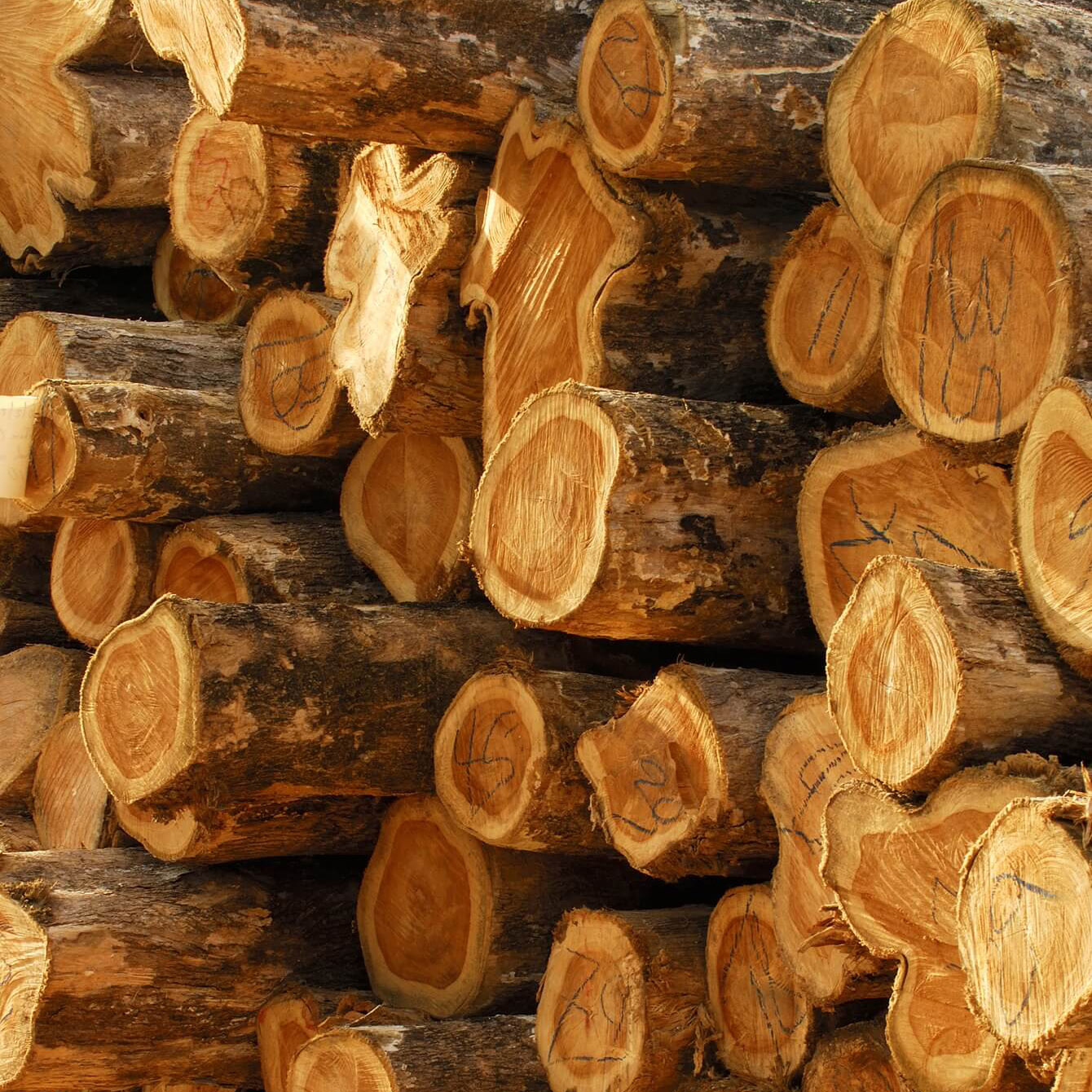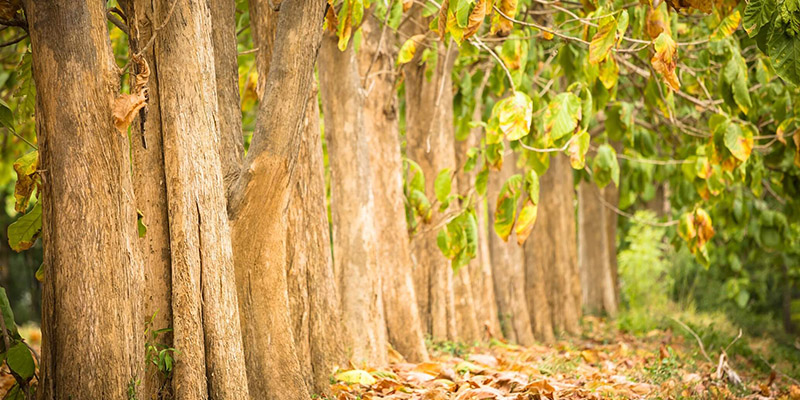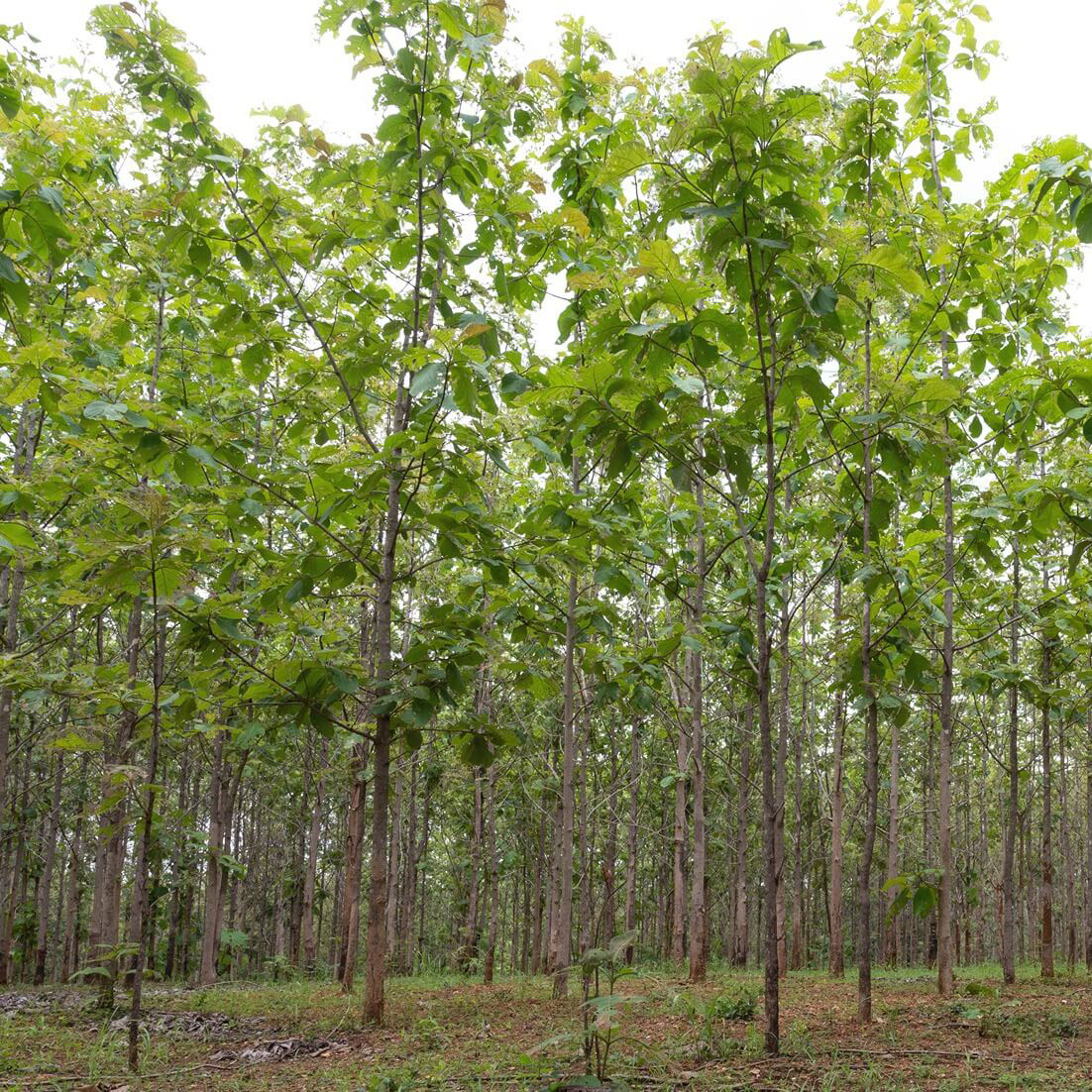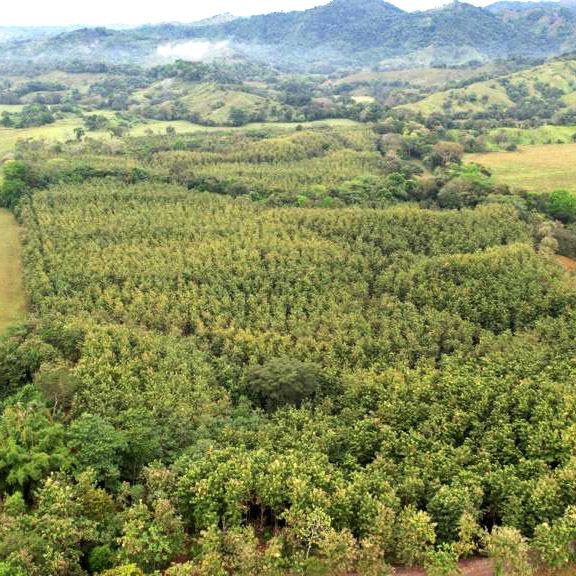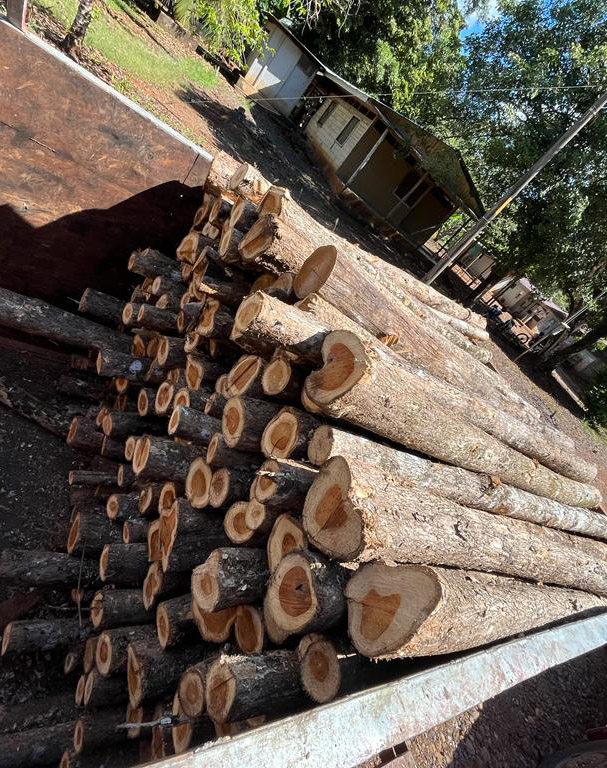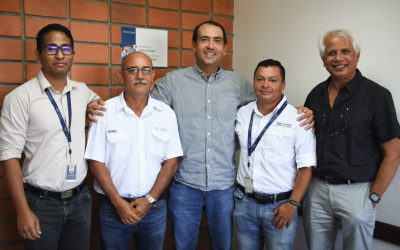Teak
OUR TRAJECTORY IN TEAK CULTIVATION
For over 40 years, the farm has consistently cultivated timber, which has been an exciting project for us at DAPASA (Desarrollo Agropecuario del Parrita, S.A.). Through decades of dedication and effort, we have allocated suitable areas for this cultivation. Farms such as La Unión, La 45, and El Jicote have underscored our commitment to this noble wood. Nowadays, the oldest teak trees are approximately 25 years old, while the youngest ones have been transplanted for 5 years. This variety in ages reflects our ongoing investment and expansion in this cultivation.
CULTIVATING SUCCESS AND SUSTAINABILITY IN THE CENTRAL PACIFIC OF COSTA RICA
COSTA RICA
Our location in the Central Pacific of Costa Rica, in the canton of Parrita, province of Puntarenas, places us in a region with a rich agricultural tradition, where crops such as rice, African oil palm, and livestock stand out.
Over the years, we have learned, grown, and evolved in the world of teak cultivation, always seeking excellence and sustainability in every step of our process. We are committed to continuing this trajectory with the same enthusiasm and dedication that has brought us to where we are today. Implementing management practices that have a lesser impact on the environment, we cultivate in lands designated for agricultural development and those practicing soil conservation, using green coverings like the leguminous Kudzu, which, aside from fixing atmospheric nitrogen and providing organic matter, maintains soil moisture and health. These practices prevent soil erosion with live coverings and further with agronomic practices such as distributing pruned leaves in the area.
Our cultivation captures approximately 15 tons of CO2 per hectare per year, contributing to the removal of greenhouse gases that contribute to global warming.
Hectares
Years of production
Annual tons of CO2
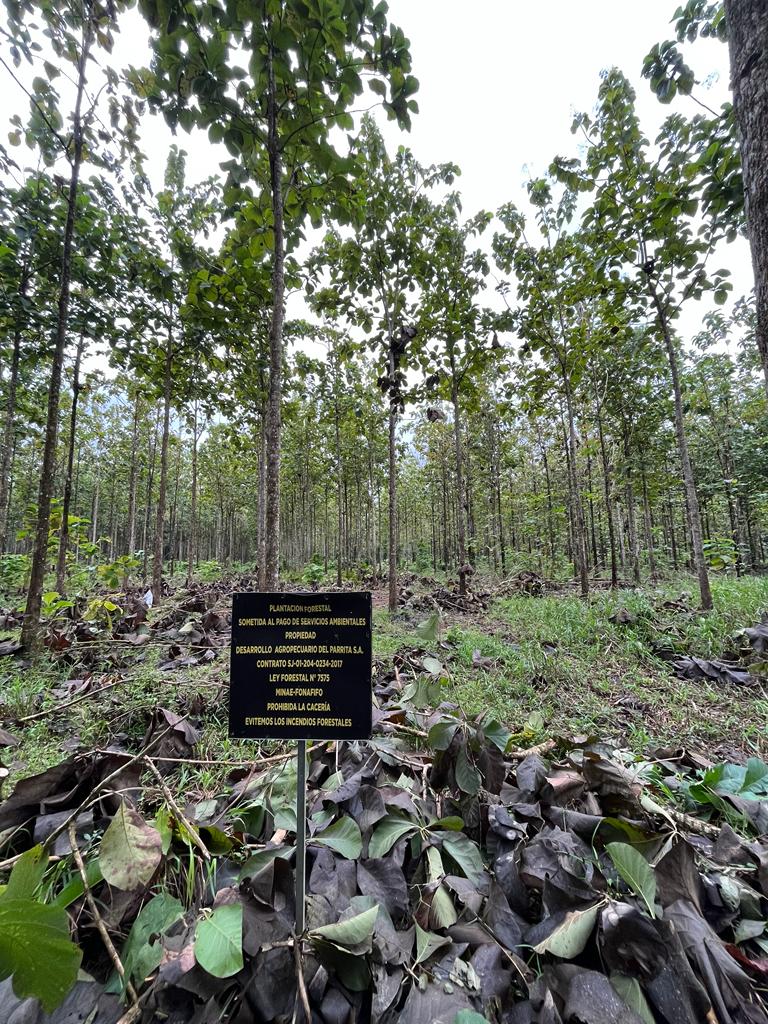
40-YEAR TRAJECTORY IN OIL PALM PRODUCTION IN PARRITA
In the last 40 years, our company has been cultivating Teak in the Parrita region. Being a leading company in this agricultural sector, it's central to various local sawmills that provide employment to the community and also marketed at times through exporters who seek the product for its beauty, quality, and good agricultural management, respecting the principles and values of sustainability.
CLIMATE AND EXPANSION
The area is characterized by a warm climate with temperatures ranging between 25°C and 33°C, along with high solar radiation, which is essential for the optimal development of teak. In recent years, we have experienced an average annual precipitation of 3,700 mm with two distinct climatic seasons: a dry season from December to April and a rainy season from May to November, with transitions in April and December. Currently, we manage 35 hectares of teak and are considering expanding our plantings in suitable areas within the same Central Pacific region, adding approximately 10 hectares in the coming years.
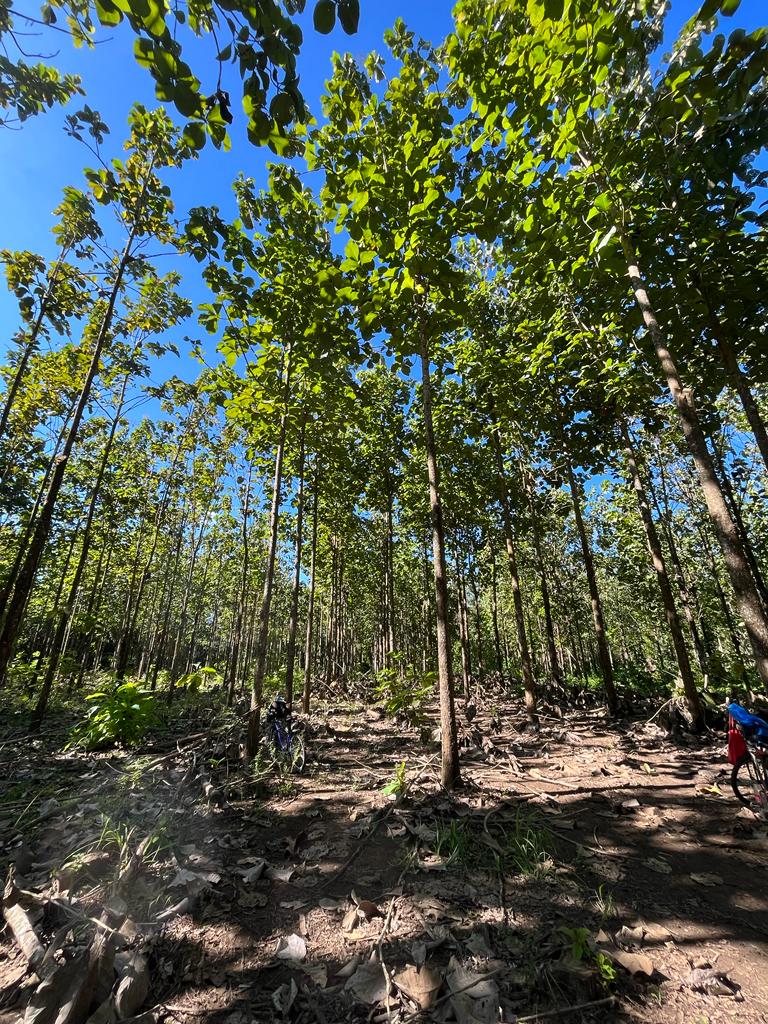
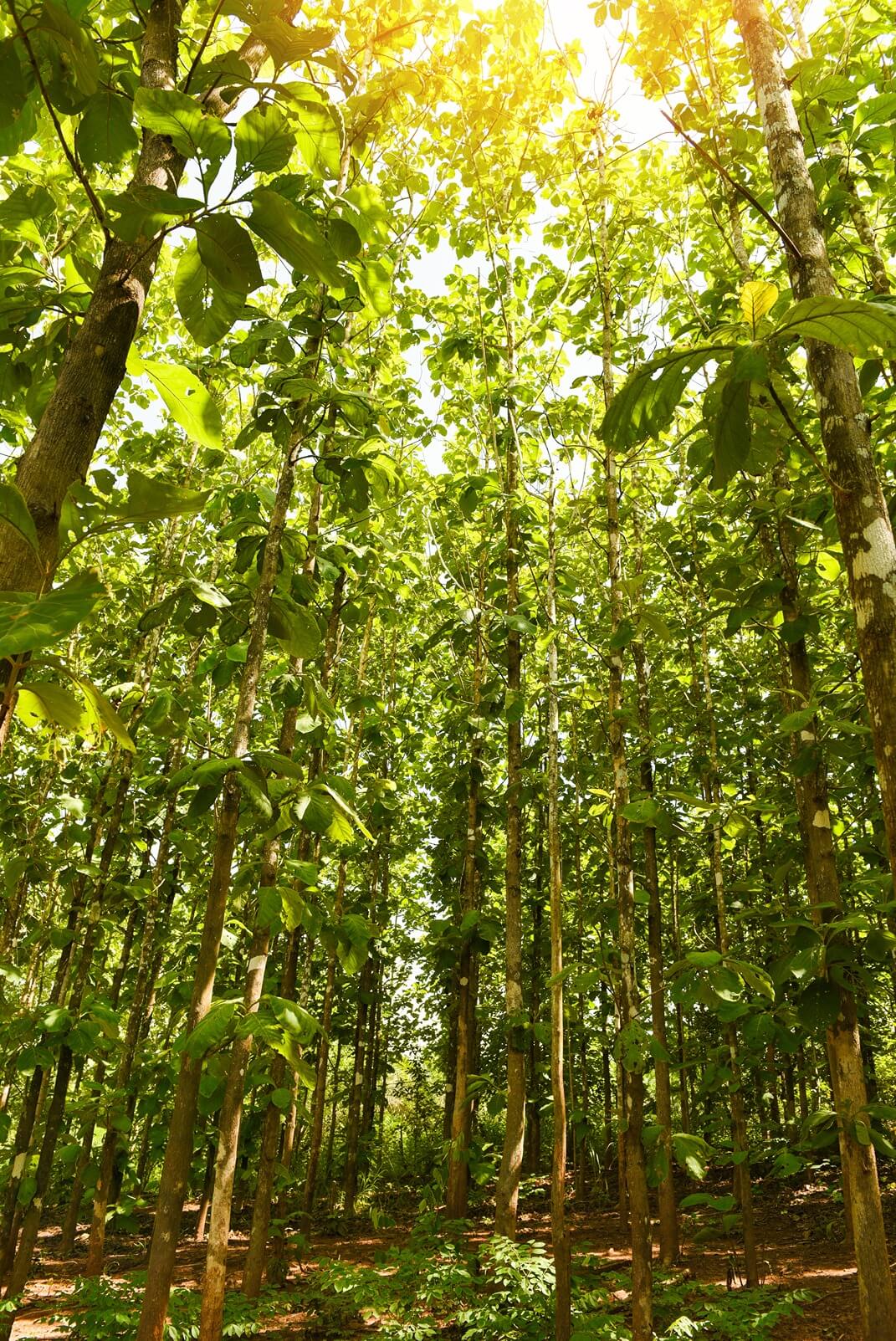
OUR VARIETIES AND ADVANCEMENTS
Tectona grandis The species is widely known as Teak in most countries. The species was introduced to Central America in Panama in 1926 with seeds from Sri Lanka. Seeds from this origin were sent to most countries in Central America and the Caribbean. The first plantations were established in Costa Rica between 1926 and 1929.
SUSTAINABILITY AND QUALITY ASSURANCE
Our plantations adhere to Forest Law #7575 from MINAE-FONAFIFO, which supports our commitment to sustainability and the implementation of good agricultural practices in our daily operations, ensuring the quality of our final product. We also prioritize our commitment to our employees, their culture, and their economic growth, by respecting and guaranteeing their work hours, providing necessary protective equipment and inputs for their tasks in a healthy environment. Additionally, we implement agricultural practices that promote environmental services.
Latest News:
New lab in conjunction with the TEC
El pasado 22 de junio firmamos un convenio con el Instituto Tecnológico de Costa Rica para crear un laboratorio de biocontroladores. Agradecemos la nota del TEC en su sitio web.
Our Certifications




